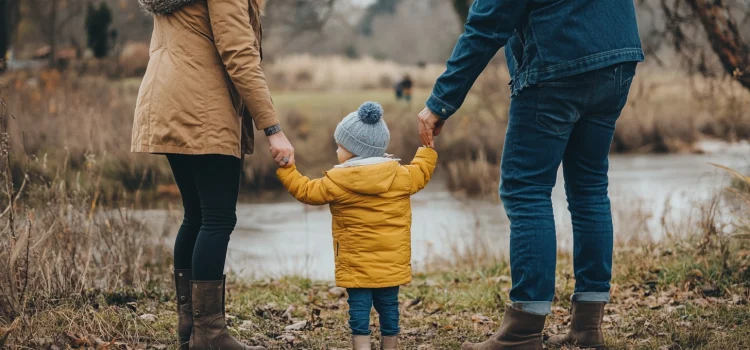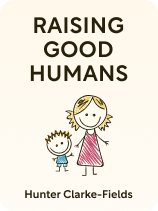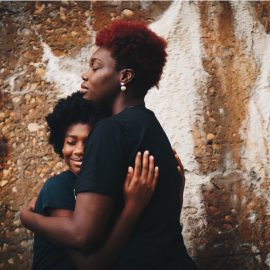

This article is an excerpt from the Shortform book guide to "Raising Good Humans" by Hunter Clark-Fields. Shortform has the world's best summaries and analyses of books you should be reading.
Like this article? Sign up for a free trial here.
Do you want your kids to grow up as mature, kind adults? How can you raise kids with compassion?
According to Hunter Clarke-Fields, building a strong relationship with your kids is the key to raising good humans. If you have a strong relationship, your children will want to work with you to resolve conflict (at least most of the time).
Keep reading to learn how to raise good kids with a healthy relationship and mindful parenting.
The Key to Raising Good Humans
Clarke-Fields’s relationship-based approach on how to raise good kids shifts the focus of parenting from getting your kids to “behave” to understanding the emotions and needs underlying their (mis)behaviors. She reminds us that kids are people too—with their own needs, wants, fears, and desires. She argues that prioritizing connection and fostering an atmosphere of mutual respect and empathy allows parents and children to grow together and deepen their understanding of each other—creating families where each member feels valued, heard, and genuinely cared for.
(Shortform note: Approaches like Clarke-Fields’s, which promote empathy and mutual respect between parents and children, are supported by psychological research. According to the American Psychological Association (APA), research over the years has consistently shown that authoritative parenting, which balances reasonable demands with responsiveness to children’s emotional needs, is linked to the most positive psychological outcomes among children. This body of evidence underscores the shift away from more authoritarian parenting styles toward methods that emphasize understanding and emotional connection.)
According to Clarke-Fields, “mindful parenting” can help you build a stronger connection to your child. In the next section, we’ll explain what mindful parenting is and how it can help you be a more effective and intentional parent.
Mindful Parenting
Mindful parenting is a compassionate, awareness-based approach that helps you focus on being present and emotionally available for your children. Clarke-Fields argues that practicing mindful parenting can fundamentally change how you interact with your kids. It’s about showing up fully, even for little moments—listening intently, empathizing, and responding thoughtfully rather than reacting instinctively when you get frustrated or upset. According to Clarke-Fields, when you begin to practice mindful parenting, you can strengthen your relationship with your children while also modeling for them how to handle emotions and stress in a healthy way.
(Shortform note: Jon Kabat-Zinn and Myla Kabat-Zinn introduced the concept of mindful parenting to mainstream consciousness with their book Everyday Blessings, released in 1997. Mindful parenting—rooted in practices and principles that Jon Kabat-Zinn developed for his Mindfulness-Based Stress Reduction (MBSR) program—emphasizes being fully present and engaged with one’s children in a compassionate and non-judgmental way.)
Clarke-Fields emphasizes that an important part of mindful parenting is not judging yourself for making mistakes or having moments of disconnection with your kid. She acknowledges that parenting is hard and that perfection isn’t the goal. She points out that “mistakes,” or moments of conflict, are opportunities for you and your child to learn, and for you to practice self-awareness and humility—both valuable skills to model for children.
(Shortform note: Sometimes the judgment we feel as parents doesn’t come from us, but from other people. One study found that nearly 90% of parents feel judged for their parenting choices. Researchers suggest that this tendency to judge is partly human nature, but insecurity also plays a significant role; seeing other parents make different parenting choices can trigger our own insecurities and lead us to judge in defense. Moreover, those who have been judged are more likely to judge others, creating a cycle of criticism that can be harmful not only to other parents but also to their children and themselves.)

———End of Preview———
Like what you just read? Read the rest of the world's best book summary and analysis of Hunter Clark-Fields's "Raising Good Humans" at Shortform.
Here's what you'll find in our full Raising Good Humans summary:
- How to use mindfulness to manage emotions—both yours and your child's
- Four steps to resolving conflicts with your child
- Practical strategies for creating a simple, low-stress environment at home






